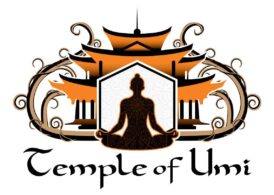Why massage is beneficial, according to a cardiologist.

On television or in a movie, we’ve all seen it. First, the patient is not doing well, and the situation is tense. Then, urgently, the doctor calls out. Retractor! Scalpel! Suction! Massage Chair!
What’s that, a massage table?
A body oil scream from Dr. House?
If you enjoy massages, you might contribute to the longevity and health of your heart and arteries.
Numerous diseases, including insomnia, multiple sclerosis, anxiety, cancer pain, and postoperative recovery, have been linked to the positive effects of massage therapy in scientific studies.
According to a number of recent scientific research, the heart can benefit from massage therapy.
In 2008, 263 individuals participated in a study in which they received massages lasting between 45 and 60 minutes. After only one treatment, patients typically saw a decrease of 10/mg Hg in blood pressure and 10/min in heart rate. The most you could hope for is a lifetime supply of a new blood pressure drug!
A 15-minute massage was given to 50 individuals with modestly increased blood pressure three times per week for ten sessions earlier this year. In contrast, a control group of individuals just relaxed for the same period. Only the massage group’s blood pressure decreased at the end of the sessions and stayed lower for many days.
Another study this year looked at 8 women with high blood pressure who underwent a weekly hour-long massage for four weeks. At the end of the study, their blood pressure dropped by 12 mm Hg systolic (highest number), and blood measures suggesting inflammation (particularly VCAM-1 if you enjoy science) dropped dramatically. A control group rested for the same period and improved less in the exact measurements. The decrease in inflammatory markers is noteworthy and shows that massage therapy may have a systemic therapeutic impact.
For what reasons might massage therapy raise cardiovascular function scores?
Multiple human investigations have shown that levels of the stress hormone cortisol are reduced in the saliva and urine. However, several experiments failed to find a reduction in adrenaline and norepinephrine stress chemicals in the urine.
The bottom conclusion is that we have yet to learn all about these routes, and further research is needed.
Maybe you should stop taking your blood pressure medicine. Your magnesium, CoQ10, and taurine blood pressure-reducing pills should be discarded. Instead, renounce your plant-based meals rich in watermelon, arugula, pine nuts, and leafy green veggies that are high in phytonutrients.
No, it is certainly premature to compare massage treatment to these methods. In addition, there are no studies demonstrating a reduction in heart attacks, strokes, or heart-related mortality, and there likely never will be due to the high cost of conducting such research.
Because tens of millions of individuals in the United States alone suffer from high blood pressure, massage therapy can complement acupuncture, yoga, meditation, and Tai Chi to preserve good vascular health.
Buddha said that “to keep the body in good health is a duty, otherwise we shall not be able to keep our mind strong and clear.”
This may be the week to schedule a massage to reach that objective.
Have you heard about the ayahuasca healing retreat? If not, learn about it now!
